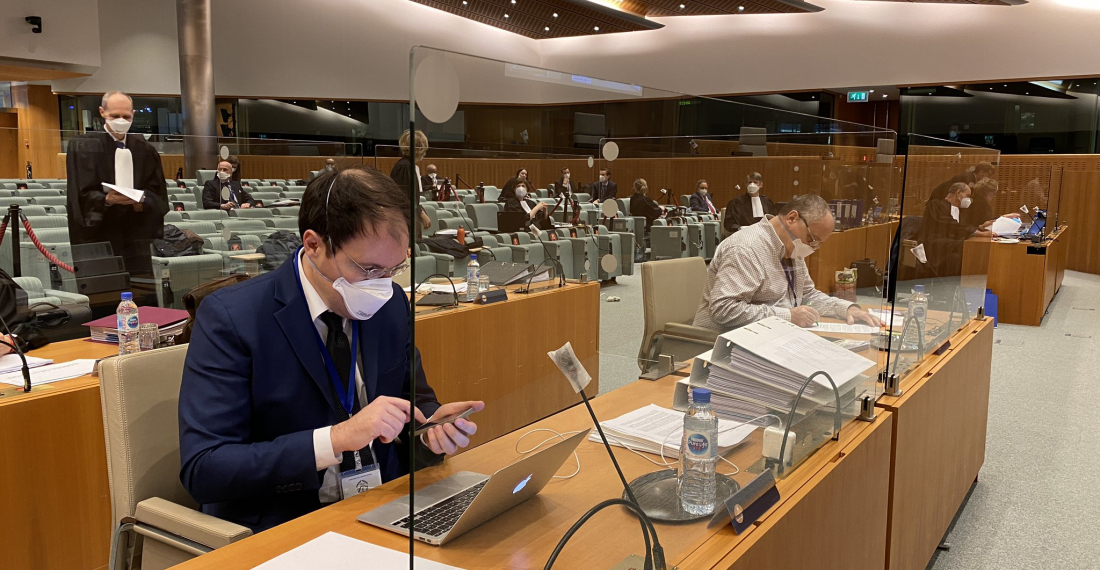- Armenia-Azerbaijan Strategic Expert Platform: Members emphasise the importance of the present moment for the South Caucasus and call for the momentum to be used for the long-term peace and prosperity of the region
- Thursday Interview: Dr. Anar Valiyev
- Food insecurity in Somalia has nearly doubled in the past year
- Türkiye evaluating potential measures in case of a US-Iran conflict
- European Parliament reaffirms support for Ukraine and EU Path
- EU moves ahead with Ukraine loan preparations despite Hungarian block
Polisario Front demands UN keeps its promises, as European Court starts addressing a case challenging an EU-Morocco trade agreement

On Saturday, the Polisario Front celebrated the 45th anniversary of creating the Sahrawi Arab Democratic Republic during which its leaders called on the United Nations to "fulfil its promises to rid Western Sahara from colonialism in accordance with its charter and decisions." The Polisario also accused the UN of siding with Morocco in the dispute over the territory and blamed it for the current political impasse.
The front's leader, Brahim Ghali, and the leader of its national council, Khatri Addouh, made speeches over the weekend in refugee camps that house the Sahrawi population as part of celebrations marking the establishment of the Sahrawi republic.
Western Sahara spans 266 thousand square kilometres just north of Mauritania, and it is considered to be the last territory of the African continent whose status has not been settled in the post-colonial era. Morocco controls more than 80 percent of its area while the Polisario Front controls less than 20 percent. Since spring 2019, quadripartite peace negotiations (Morocco, the Polisario, Algeria and Mauritania) that were sponsored by the United Nations have been suspended.
Rabat proposes an autonomy plan under its sovereignty while the Polisario is calling for a referendum on self-determination. Tensions returned to this region in November 2020, after Morocco deployed its forces in the Guerguerat region after reports that a major road between Morocco and Mauritania was blocked.
Meanwhile, the European Court of Justice will be addressing the Western Sahara file as the Polisario Front is challenging fishery and agriculture agreements between the European Union and Morocco that allow Rabat to export agricultural products and fish from the disputed territory.
Hearings are scheduled today and tomorrow before the ninth Chamber of the European Court of Justice. A decision, however, might take months. Rabat said that it looks forward to defending the "legitimacy of its commercial partnership" with the European Union.
The front is regularly engaging in diplomacy battles through a number of legal procedures. Lawyer Gilles Devers says that facilitating access to the EU market contributes to maintaining colonialism. The front seeks to push European companies established in Western Sahara to leave.
The Polisario already achieved a victory in 2016 when the European Court ruled that the free trade agreement between Morocco and its main trading partner, the European Union, could not be applied in Western Sahara. However, Duffer believes that the European Parliament circumvented the court’s conclusion by adopting a document in 2019 that extended the preferential customs fees granted under an agreement signed in 2013 between the European Union and Morocco.
The EU Commission said in a 2020 study that this customs agreement is a “key factor in maintaining or even increasing the employment rate” in Western Sahara, and thus it constitutes a “strong asset to reduce immigration pressure, especially in times of crisis.” The study added that this "pragmatic approach" also contributed to establishing a "positive dialogue" with Rabat on the human rights file, where "a certain number of challenges" remain.
In the last days of the former US administration, the Americans announced the recognition of the sovereignty of Morocco over the Sahara. The recognition was believed to be an exchange for Moroccan normalisation with Israel. However, the Chargé d'Affairs of the United States Embassy in Spain, Conrad Tribble, revealed that Washington is reviewing the former administration's recognition of the Moroccan Sahara. Tribble announced that the US has not taken any action pending the reevaluation of the issue. There are various opinion in Washington on this matter with some calling for reversing the recognition citing legal concerns, and other suggesting to keep the recognition as it would open a chance to end the conflict.
The UN Security Council will likely discuss the issue in April and it is believed that the US would also form its policy by then.








